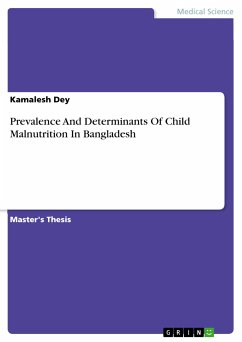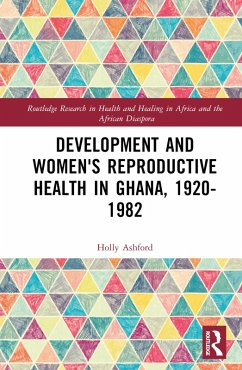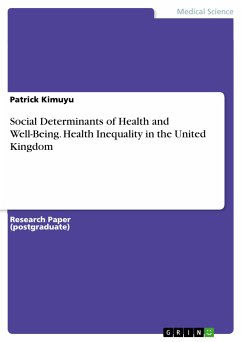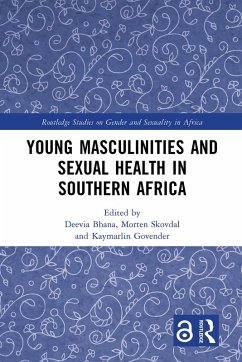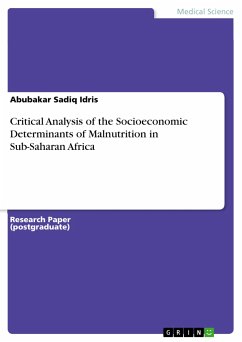
Critical Analysis of the Socioeconomic Determinants of Malnutrition in Sub-Saharan Africa (eBook, PDF)
Sofort per Download lieferbar
Statt: 15,95 €**
13,99 €
inkl. MwSt. und vom Verlag festgesetzt.
**Preis der gedruckten Ausgabe (Broschiertes Buch)
Alle Infos zum eBook verschenkenWeitere Ausgaben:

PAYBACK Punkte
0 °P sammeln!
Research Paper (postgraduate) from the year 2016 in the subject Health - Public Health, Northumbria University (Social Health and Wellbeing), course: Public Health Fundamentals, language: English, abstract: Malnutrition is a serious challenge posing tremendous negative impact in sub-Saharan Africa and the world in general. In view of this, the United Nations (UN) proposed the Sustainable Development Goals (SDG2) which hopes to "End hunger, achieve food security and improved nutrition and ensure sustainable food production by 2030". Several socio-economic factors have been identified as the pri...
Research Paper (postgraduate) from the year 2016 in the subject Health - Public Health, Northumbria University (Social Health and Wellbeing), course: Public Health Fundamentals, language: English, abstract: Malnutrition is a serious challenge posing tremendous negative impact in sub-Saharan Africa and the world in general. In view of this, the United Nations (UN) proposed the Sustainable Development Goals (SDG2) which hopes to "End hunger, achieve food security and improved nutrition and ensure sustainable food production by 2030". Several socio-economic factors have been identified as the principal causes of malnutrition; some of these include poverty, lack of education, poor government policies, poor access to healthcare, poor access to hygienic water supply and environmental sanitation, lack of toilet facilities as well as gender inequality and corruption. However, it is important to note that all of these factors are related to each other in one way or another. Thus, in order to mitigate the continued rise in the level of malnutrition in sub-Saharan Africa, a multifocal approach is needed. These factors should not be approached individually in the process of finding a viable solution to the scourge of malnutrition, rather they should be approached as a collective entity in the planning and implementation of government policies.
Dieser Download kann aus rechtlichen Gründen nur mit Rechnungsadresse in A, B, BG, CY, CZ, D, DK, EW, E, FIN, F, GR, HR, H, IRL, I, LT, L, LR, M, NL, PL, P, R, S, SLO, SK ausgeliefert werden.




